The Simpsons creator Matt Groening marks 25 years with new book
A NEW book by The Simpsons’ creator Matt Groening traces the history of everyone’s favourite four-fingered family from Springfield.
IN one sense, not much has changed for The Simpsons in a quarter of a century.
Patriarch Homer is still a lovable, beer-swilling doofus and wife Marge, with her unchanging shock of towering blue hair, as long suffering as ever. Ten-year-old Bart is a perennial juvenile delinquent, with a knack for finding and causing trouble, with younger sister Lisa the constant brains and moral core of the family. Then there’s baby Maggie, always sucking noisily on her pacifier, exasperated at the mayhem unfolding around her.
In the foreword to the new book The Simpsons Family History, which traces the chaotic clan’s adventures from Homer’s many jobs to the growing family and run-ins with motley residents of Springfield such as the evil power plant owner Monty Burns, Matt Groening says: “Millions (billions?) of people have watched the Simpsons grow up for a quarter of a century. And by grow up I mean stay pretty much the same. Of course, Homer and Marge never age, Lisa and Bart are forever stuck in the second and fourth grades, respectively, and Maggie will never outgrow that blue onesie or lose that soggy pacifier. But that doesn’t mean there wasn’t a beginning to the never-ending Simpsons saga. Homer and Marge had their first meet-cute, first date, first kiss, and first (of many) weddings. Bart pulled his first prank, caused his first international scandal, and got beaten up the first (of many) times. Lisa blew her first saxophone solo, staged her first protest, and had her first (of many) disappointments. And Maggie spoke her first word (albeit in private).”
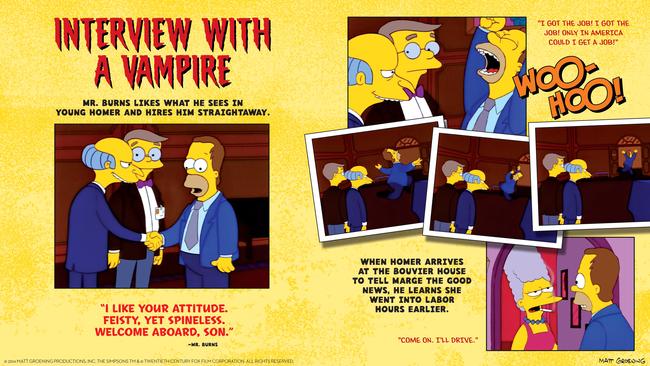
But as much as they have remained in a state of suspended animation, in another sense everyone’s favourite four-fingered family has changed so much. In the 552 episodes since the very first one went to air in the US on December 17, 1989, The Simpsons have become a pop culture phenomenon to rival the Beatles and Star Wars. It cruised past Gunsmoke five years ago to become the longest running American scripted prime time TV series and along the way has accumulated 21 Emmy Awards and was named the best television series of the 20th century by Time Magazine. The family has its own star on the Hollywood Walk of Fame and a big-screen blockbuster that made more than half a billion dollars. Oscar-winning actors, Grammy-winning musicians, Nobel laureates and even heads of state queue up to appear on the show. Homer’s endlessly imitated catchphrase “D’oh” is now listed in the Oxford English Dictionary and Groundskeeper Willie’s legendary put-down of the French as “cheese-eating surrender monkeys” was quoted in the Australian parliament earlier this year. And aside from the fab five, there is a peerless support cast that keeps the possibilities of the show fresh — from Chief Wiggum to Moe the bartender and Comic Book Guy to Professor Frink.
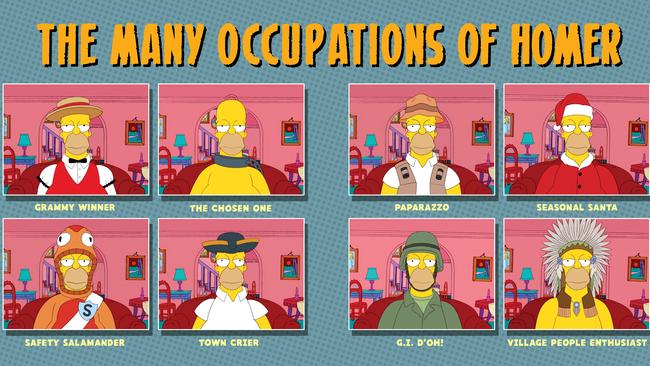
After their humble beginnings as shorts on The Tracy Ullman Show, Groening realised the impact of his characters in the early ‘90s, when Bart-mania was at its peak and the phrases “aye caramba’’ and “don’t have a cow, man’’ decorated T-shirts of wildly varying quality around the world.
“Back at the beginning, the staggering thing that we could not have imagined was the huge amount of bootleg merchandise — there were T-shirts all over the place with Bart Simpson on them that were drawn by people who could even draw worse than I did,’’ Groening says. “And then some of the catchphrases seemed to enter the culture very quickly. It seemed like every day I would be walking down the street and someone would drop their car keys and I would hear them say, `d’oh’.’’

While seasons three to eight are generally considered the Golden Age of the Simpsons, after 25 seasons, The Simpsons still draws millions of viewers, and is still one of the most reliably funny shows on TV. It has also opened the door for other similarly subversive cartoons, the most notable and long-lived of which has been Seth MacFarlane’s Family Guy. Indeed the two worlds will collide later this month with a long-awaited Simpsons/Family Guy crossover, which airs in the US on September 29. MacFarlane says that the perceived rivalry between the two shows is a myth and acknowledges that without The Simpsons, there would be no Family Guy.
“Matt Groening and I get along really well and I have enormous respect for him,” MacFarlane says. “That show has everything to do with why the rest of us get to play in the prime time animation world. We have had a few Simpsons writers who have come over to work for Family Guy in recent years and I like those guys a lot. They are a great bunch and they do a great show. They are very humble and classy about it.’’
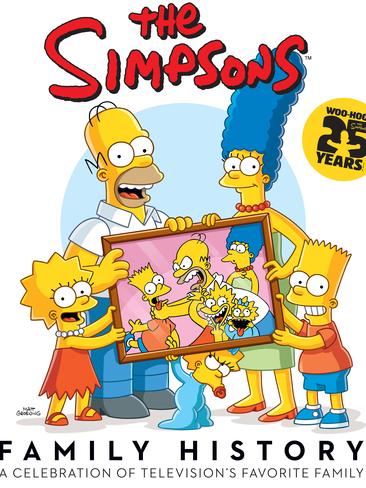
STARS AND THE SIMPSONS
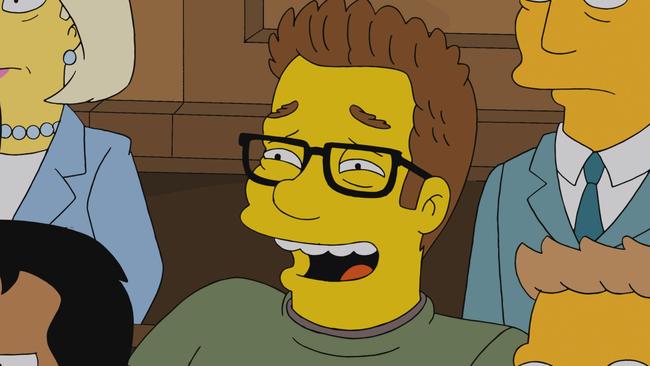
“It’s just the craziest thing that ever happened. I do a voice, but I think writing it was actually better, just to see Homer say something that you thought of is the greatest thing a comedy writer can experience.’’
Seth Rogen on becoming the first outside writer after Ricky Gervais to pen episode of The Simpsons
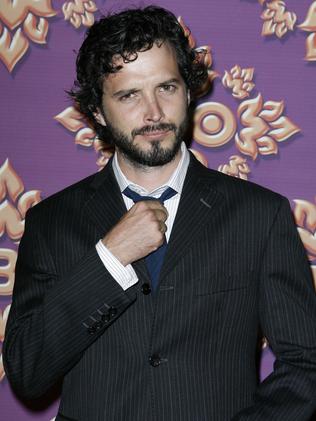
“That’s pretty high up there. That’s a ‘you’ve made it’ kind of box. It was cool. While you’re recording they have the artists there drawing pictures of you to try to capture the way you move and get a really accurate picture.”
Flight of the Conchords and Muppets Oscar-winner Bret McKenzie on where appearing on The Simpsons features in his highlights reel.

“The Simpsons and Goodfellas are the sole reasons I am in any form of entertainment.’’
Oscar nominee, actor Jonah Hill.

“I thought The Simpsons theme was a fun thing that no one would ever hear. I spent a day on it. One day of my life doing something fun for this silly little thing that I thought would be out and gone in two seconds — but I didn’t care, it was fun. I had no clue of what it would become.”
The Simpsons’ theme composer Danny Elfman



